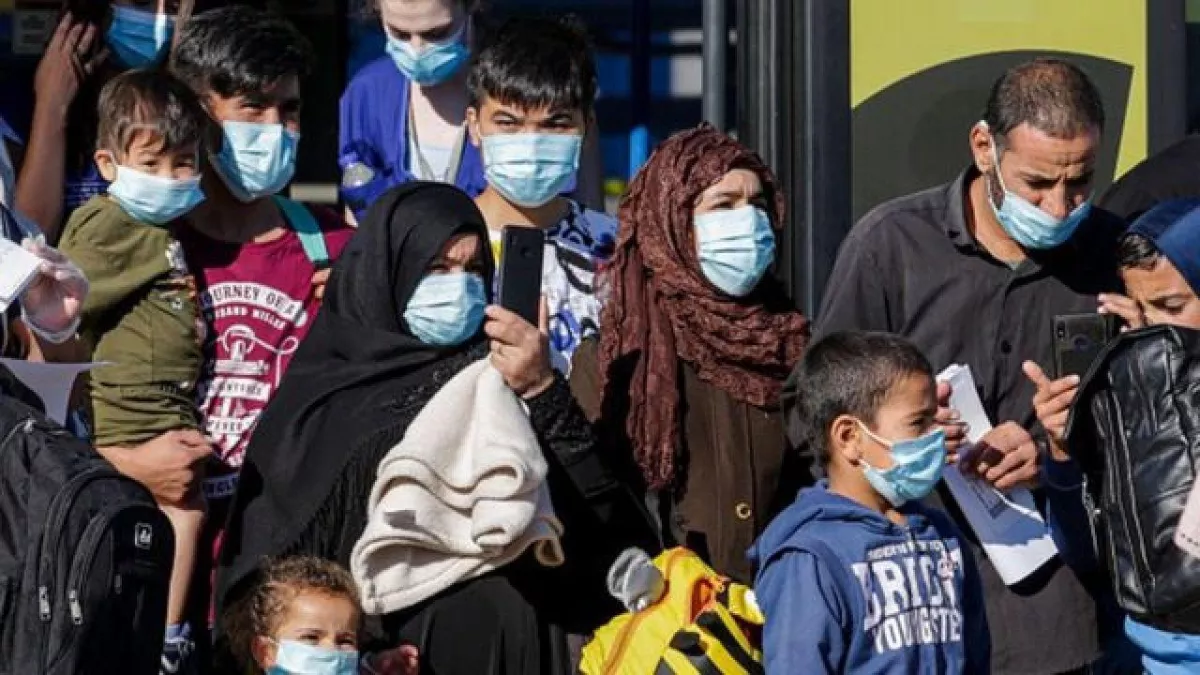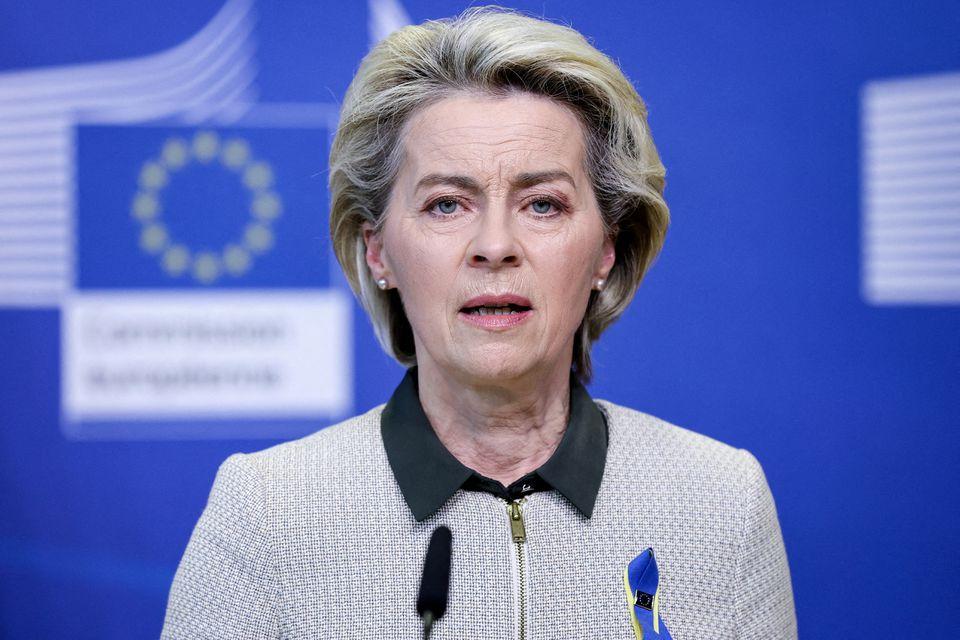EU leaders adopt right-wing policies amid migration crisis Shifting sands
The European Union's recent shift to the right signals a significant crisis that Europe is currently facing.
European Union leaders, inspired by German Chancellor Olaf Scholz's recent domestic political moves, have begun to adopt the positions of right-wing parties that they previously dismissed. For instance, the ruling Social Democrats in Germany—despite being part of the "traffic light" coalition—embraced the programmatic positions of the Alternative for Germany (AfD) during the summer, particularly regarding their stances on migration and anti-war policies in the context of the Russian-Ukrainian conflict. This strategy enabled the Social Democrats to win regional elections in Brandenburg and allowed them to take the initiative from the AfD in various domestic political matters, including subtle yet impactful calls for peaceful negotiations between Kyiv and Moscow.
Thus, it may seem paradoxical, but now even the leaders of the European Union have begun lobbying for measures that were previously championed by right-wing parties, which faced fierce criticism from all sides, especially in the context of the evolving migration crisis.
For example, ahead of the upcoming EU summit on October 17-18, European Commission President Ursula von der Leyen released a ten-point action plan on migration in a letter to the heads of state and government of EU countries. Analysts particularly note provisions regarding cooperation with partner countries in "preparing and responding to hybrid attacks and instrumentalisation of migrants," a "harmonised approach to the issuance of visas," and a unified understanding of "the idea of developing return hubs outside the EU." It is in the context of this last provision that the European Commission's reliance on right-wing proposals is emphasized, as von der Leyen advocated for the implementation of "innovative ways to counter illegal migration," highlighting the establishment of "return hubs" outside the EU for migrants who do not have the right to asylum.

The discussion here revolves around the initiation of so-called "extraterritorial" centres for migrants, where asylum seekers, whose cases are either under review or have been rejected, will be housed. Hungarian Prime Minister Viktor Orbán has long emphasized the importance of operating these "extraterritorial migration centres," where refugees who have been "denied entry into the community" would await deportation to their country of origin. On October 9, he once again spoke about this measure as a means of protecting Europe from the "illegal migration that is pressuring the continent."
Thus, the ideas of the right-wing, whose success in both the European Parliament and national elections has been conveniently ignored by EU leaders, are now being presented as if they were the leaders' own innovations. Whether they will succeed in deceiving Europeans with this approach remains to be seen. But the fact remains that all these steps by the so-called centrists are a clear indication of the complete failure of their domestic policies.
Regarding extraterritorial migration centres (without any need for quotation marks), this approach has already been tested by Albania and Italy. The Italian government established such a “facility” in Albania, and Ursula von der Leyen praised the protocol signed between Rome and Tirana as an example of "out-of-the-box thinking." She has now stated that "we will also be able to draw lessons from this experience." Italian Prime Minister Giorgia Meloni (leader of the right-wing party "Brothers of Italy") described the creation of the centre as a "courageous, unprecedented path, but one that perfectly reflects the European spirit and has all the makings of a path to be taken with other non-EU nations." Albanian Prime Minister Edi Rama pointed out that the "reception centres built according to EU standards " and that those housed in them would be in "safe and correct conditions from a humanitarian point of view." On October 15, the Albanian-Italian centre received its first 16 migrants, who were rescued at sea by the Italian Navy.
Readers might find it interesting to learn that the German authorities have also actively embraced some of the positions held by the AfD (Alternative for Germany) in this regard. For instance, on October 11, German Interior Minister Nancy Faeser, during the EU Interior Ministers' summit in Luxembourg, called for "more proactive deportation of illegal migrants to safe third countries, right at the EU's external borders."
Therefore, it is not surprising that among the migration initiatives proposed by von der Leyen, there's a noticeable rightward shift, even in relation to new rules governing the long-term stay of Ukrainian refugees in EU countries. Although specific measures have yet to be detailed, the fact that this approach was brought up speaks for itself.

At the same time, von der Leyen emphasizes that any projects implemented within the EU must respect "EU principles and values, obligations under international law, and the protection of fundamental rights," while also providing "sustainable and fair solutions" for migrants. However, human rights organizations have confidently assessed these decisions as conflicting with EU law.
Overall, regarding the EU's migration issues, many European experts, as well as politicians themselves, place the blame on Europe. For example, yesterday, Greek Deputy Minister for Migration Sofia Voultepsi sharply criticized the European Commission for its inability to " to forge a common policy to deport migrants " and identified wars and climate change as the main drivers of "global displacement." According to her, to save Europe from the "continuous long-term pressure" of migration issues, "we must have a common system for asylum, a common system for returns and a common system for integration." As analysts ask in light of the Greek government's statement—who, after all, started all these wars outside of Europe?
In any case, the world is now watching with great interest as the European Union continues its noticeable shift to the right. In the context of the recent European Parliament session—marked by speeches, mutual heckling from all sides (right, left, and centrist), and interruptions—this crisis is only likely to escalate. Soon, Ursula von der Leyen will have to present candidates for her deputies and heads of the European Commission for approval by the MEPs. As they say, using the words of Signor Robinson, we'll be watching this unfolding drama with keen interest.








